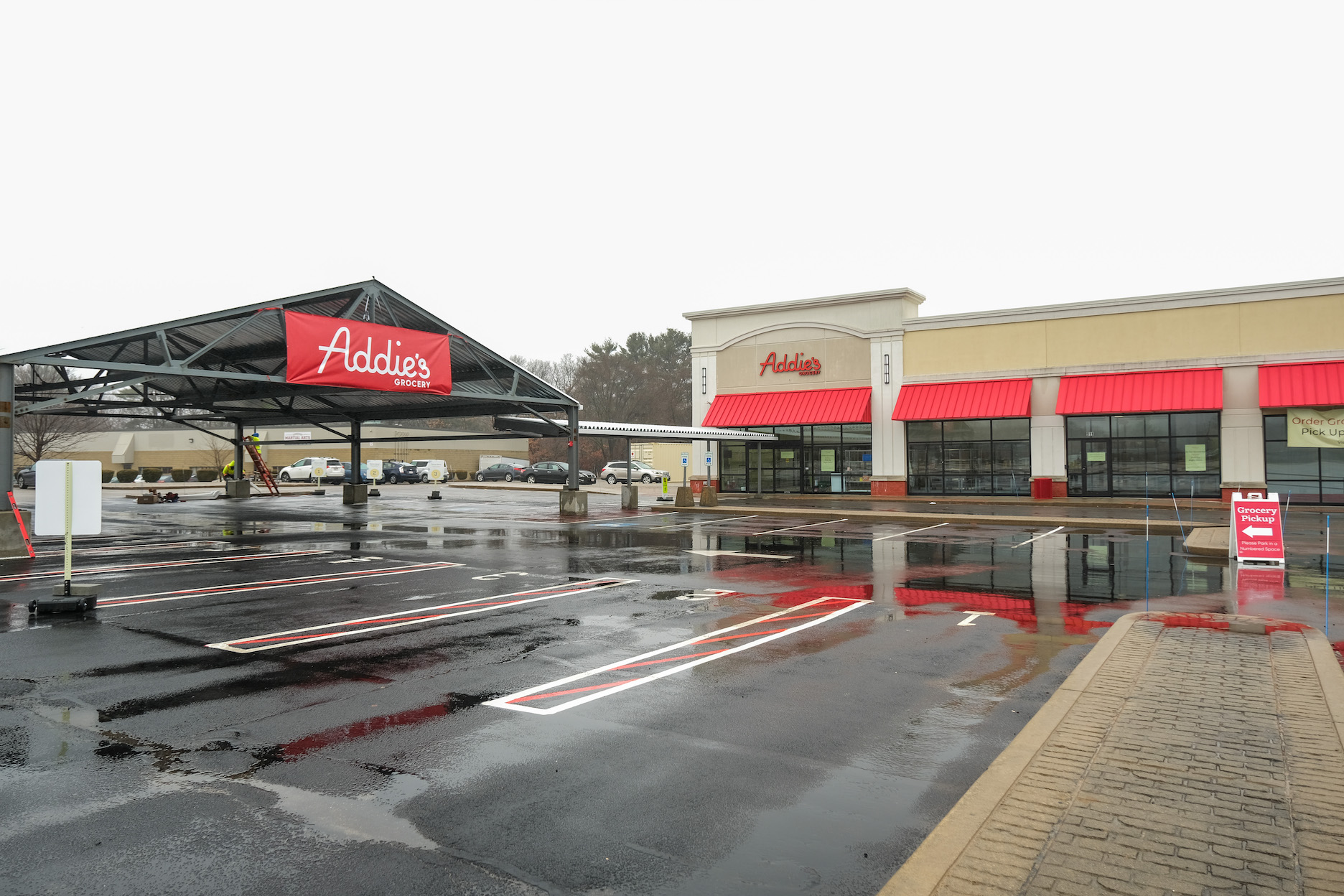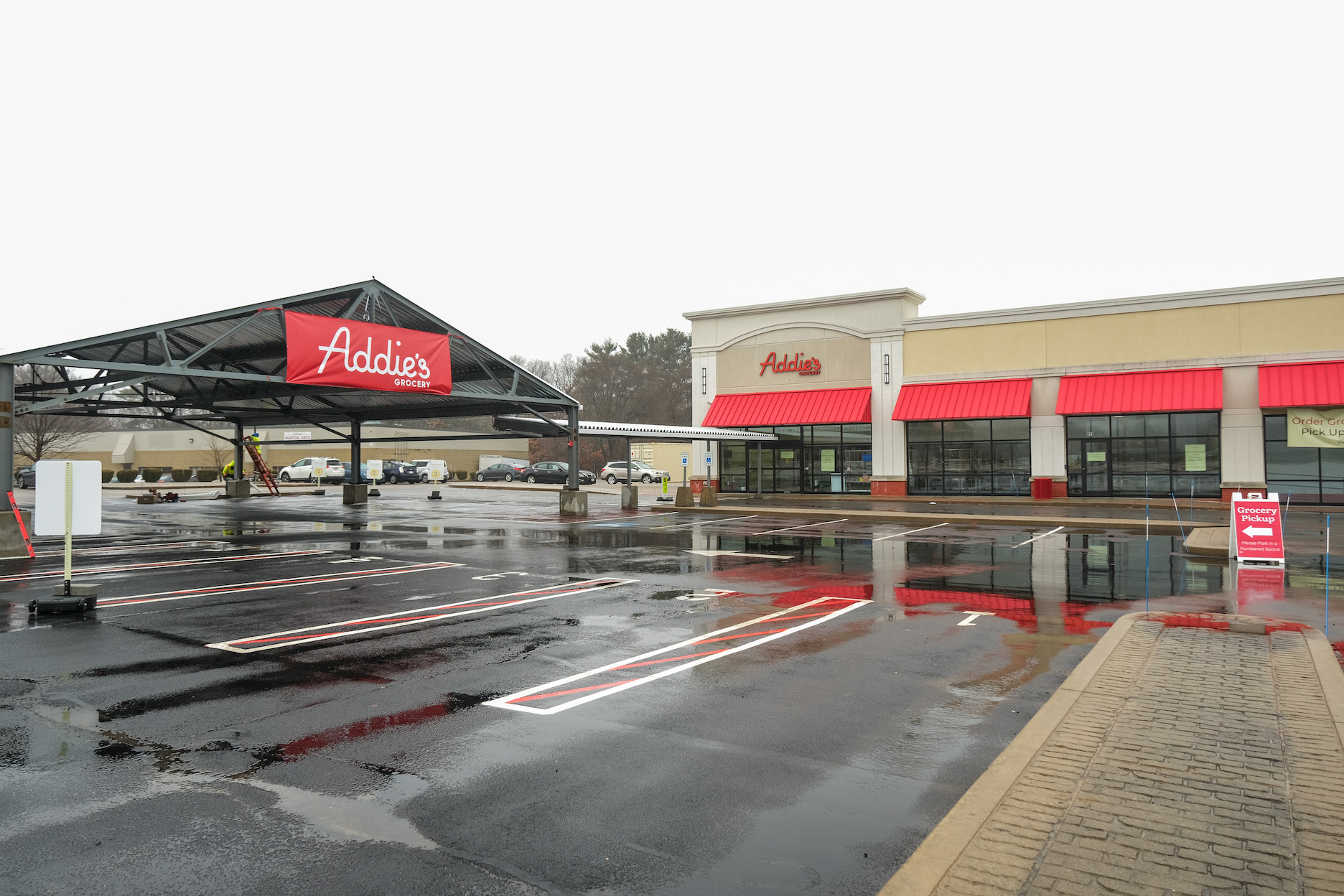
Addie’s opens first drive-up grocery store in Massachusetts following $10.1M seed
Much of the online grocery delivery frenzy from the past three years has mainly catered to urbanites who need a few items delivered in 20 minutes. But what if you are a suburban mom trying to fit a week’s worth of grocery shopping in between shuttling children to various activities?
Enter Addie’s, a drive-up grocery store opening its first location today in Norwood, Massachusetts. CEO Jim McQuade told TechCrunch that he and co-founder and CTO Jeremiah Strauss created the concept so that groceries could be stocked, stored and bagged all without shoppers having to go inside the store.
The 22,000-square-foot store offers a curated list of 4,500 products from both national and local brands ranging from bakery to baby items. Ordering looks pretty easy: Customers go to Addie’s website or app, purchase the groceries they want and choose a pick-up window that works best for their schedules. With 14 pull-through parking lanes, McQuade estimates that a customer can pull up and be driving off with their groceries in a matter of minutes.
He had been following online grocery stores for the past decade, in fact, McQuade used the word “obsessed” to describe it. His “a-ha moment” came back when he and his wife had a toddler and a baby on the way and it took him 25 minutes to find three items in the store causing him to be home late.
“I’m thinking there has to be a better way,” McQuade, now a dad of three, added. “However, we needed to reimagine every aspect of an operation to solve that problem, from the online order to the pickup. As a result, our solution looks nothing like a traditional supermarket, which is intentionally designed to be inefficient.”
With the advent of online shopping, the traditional supermarket as we know continues to go through changes. Online grocery shopping is predicted to account for 20 percent of overall grocery shopping by 2026, so it is only going to grow. In addition, grocery stores are also clamoring for new technologies to improve the in-store experience and to best competitors.
And yes, McQuade knows that national and local grocery stores offer similar pick-up service, but he explained that if you’ve ever tried one, you know that they can come with some drawbacks, like limited availability on pick-up time slots, being at the whim of the picker’s ability to choose quality products, additional fees and the online ordering inventory not matching what’s actually on the store shelf, resulting in frequent out-of-stock items.

Addie’s drive-up grocery store. Image Credits: Addie’s
Instead, Addie’s created inventory management technology systems that talk to each other in real time. McQuade said the system knows digitally where every physical item is on the shelf. To use his example, if the store has 15 gallons of organic 2% milk, but five of them are promised to other customers, the system will only allow customers to buy the other 10 gallons, but will not accept the request if someone tries to buy 11 gallons.
“We haven’t seen anyone else with that ability or get it right in this space,” McQuade added. “It lets us make sure that when we promise that item is here, we know we can keep it. So when you shop with us, you can shop with confidence.”
Now with its first store open, Addie’s is eyeing its next move, which McQuade said will be expanding store locations, and he believes that this concept could grow to over 2,000 locations.
Addie’s planned expansion is buoyed by $10.1 million in new seed funding led by Disruptive Innovation Fund, the venture capital arm of Clay Christensen’s Rose Park Advisors.
In addition, McQuade intends to use the funding to build out his team — those intentional efforts to increase efficiencies help the store to pay store employees $20 per hour in starting wages — and on technology development.
Meanwhile, he believes Addie’s has built a model that is replicable in other towns. Grocery stores need to show profitability in orders and customers, two concepts McQuade believes has already been proven.
“The busy families that have had access to our early operations love what we’re doing, and we’re seeing first, second and third orders well in excess of $200 each,” he added. “When we think about what that means, with an appropriate marketing profile, these customers are paying themselves back in a period of weeks, not months or years.”

